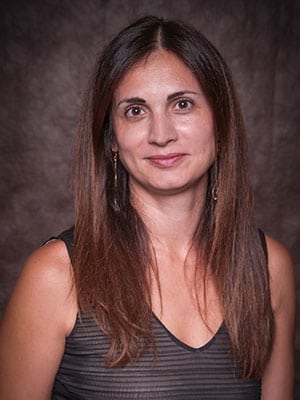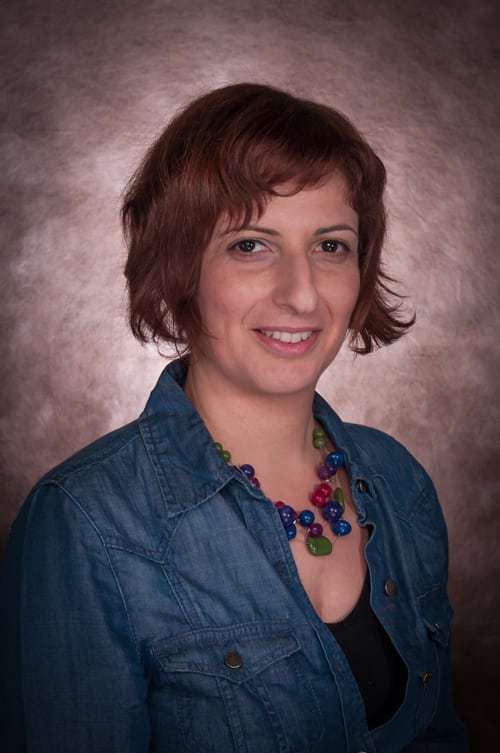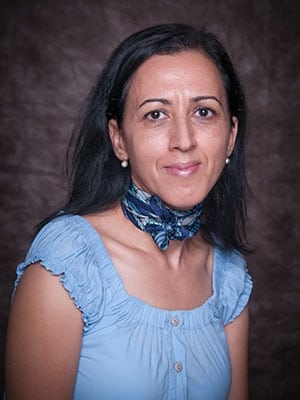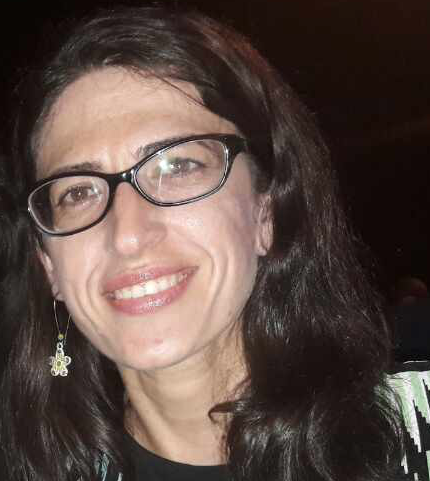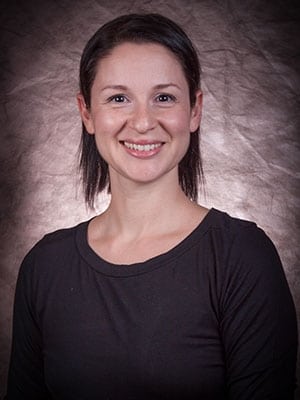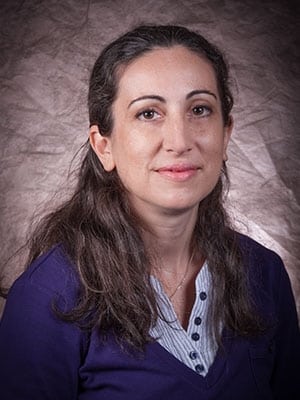Primary Education
(BEd, 4 Years)
Duration
4 years
Qualification Awarded
Bachelor of Education in Primary Education
Level of Qualification
Bachelor Degree (1st Cycle)
Language of Instruction
Greek
Mode of Study
Full-time or Part-time
Minimum ECTs Credits
240
Request Information
Primary Education (BEd, 4 Years)
| Duration | 4 years |
| Qualification Awarded | Bachelor of Education in Primary Education |
| Level of Qualification | Bachelor Degree (1st Cycle) |
| Language of Instruction | Greek |
| Mode of Study | Full-time or Part-time |
| Minimum ECTS Credits | 240 |
Request Information
Profile of the Programme
The general aim of the program is to prepare primary teachers who will teach students between the ages of 6 to 12. This means that the candidate teachers should acquire knowledge, skills, as well develop the pedagogical practices and attitudes that will enable them to organize learning environments that can enhance the holistic development of the students. Based on this context, through teaching and research, teachers should be prepared to support the social, emotional, psychomotor, and moral development of students, beyond the mere focus on student’s cognitive development. To be able to reach these objectives, both the course content and methodology aim at forming a reflective educator who is able to evaluating her/his teaching and pedagogical decisions in order to improve their practice.
Occupational Profiles of Graduates with Examples
Graduates of the programme work in public or private primary schools or in afternoon activity clubs and schools.
Access to Further Studies
Graduates of the programme can be accepted into Second Cycle degrees (Master’s Degree).
Academic Admission
In order to be admitted to the program, the candidates are required to submit the following documents:
- Copy of High School Leaving Certificate with a grade of at least 15/20 or equivalent qualification of a different grade system.
- Minimum grade in Greek and Mathematics 15/20.
If the candidates do not meet the above criteria, they may take a specific examination for admission to the program.
Course assessment usually comprises of a comprehensive final exam and continuous assessment. Continuous assessment can include amongst others, mid-terms, projects and class participation.
Letter grades are calculated based on the weight of the final exam and the continuous assessment and the actual numerical marks obtained in these two assessment components. Based on the course grades the student’s semester grade point average (GPA) and cumulative point average (CPA) are calculated.
The student must complete 240 ECTS and all programme requirements.
A minimum cumulative grade point average (CPA) of 2.0 is required. Thus, although a ‘D-‘ is a PASS grade, in order to achieve a CPA of 2.0 an average grade of ‘C’ is required.
Upon successful completion of this program, the students should be able to:
- Understand the concepts and principles of pedagogy based on the educational needs of the 21st century.
- Have an in depth knowledge of the theoretical background of pedagogy and didactic work, through the study of historical, philosophic, psychological, and sociological perspectives on teaching and learning.
- Have an in depth understanding of the school’s and the educator’s role in society today, as well as their mission for promoting the overall development of students in the 21st
- Acquire the pedagogical knowledge and teaching skills that will enable them to effectively structure their lesson plans and teach in ways that will enhance the cognitive, emotional and psychomotor skills of students, in an environment of self-action and autonomy.
- Design learning environments that can enhance students’ critical and creative thinking (formal and informal reasoning) as well as their communication skills.
- Effectively use and integrate ICT tools and other technologies in the learning process.
- Develop teaching strategies suitable for students with special needs in an inclusive school, while taking into account their basic characteristics (cognitive, learning, socio-emotional) within the existing legal framework of Cyprus.
- Evaluate student’s learning outcomes using a variety of valid and reliable assessment methods with the ultimate goal of improving the teaching process.
- Read and critically evaluate educational research studies, in addition to being able to conduct educational research that is aimed at understanding and solving educational problems, improving one’s pedagogical work, as well as promoting lifelong learning.
- Act as agents of change in the cultural and social context of each school, as well as within the wider context within which each school is located in.
Semester 1
| Course ID | Course Title | ECTS Credits |
|---|---|---|
| EDUD-164 | Χορός στη Δημοτική Εκπαίδευση | 5 |
| EDUB-099 | Ακαδημαϊκός Γραμματισμός | 5 |
| EDUB-100 | Εισαγωγή στις Επιστήμες Αγωγής | 5 |
| EDUB-121 | Νεοελληνική Γλώσσα Ι | 5 |
| EDUB-175 | Αγγλική Γλώσσα Ι | 5 |
| EDUB-170 | Εισαγωγή στην Επιστήμη της Πληροφορικής | 5 |
Semester 2
| Course ID | Course Title | ECTS Credits |
|---|---|---|
| EDUB-120 | Θεωρία της Γλώσσας | 5 |
| EDUD-131 | Μαθηματικές Έννοιες στο Δημοτικό Σχολείο | 5 |
| EDUD-261 | Μουσική Αγωγή στο Δημοτικό Σχολείο | 5 |
| EDUB-110 | Αναπτυξιακή Ψυχολογία | 5 |
| EDUB-275 | Αγγλική Γλώσσα ΙΙ | 5 |
| EDUB-105 | Ιστορία της Εκπαίδευσης | 5 |
Semester 3
| Course ID | Course Title | ECTS Credits |
|---|---|---|
| EDUD-132 | Θέματα Σύγχρονων Μαθηματικών | 5 |
| EDUB-220 | Νεοελληνική Λογοτεχνία Ι | 5 |
| EDUD-150 | Εικαστική Αγωγή στο Δημοτικό Σχολείο | 5 |
| EDUB-211 | Εκπαιδευτική Ψυχολογία | 5 |
| EDUB-200 | Θεωρία και Μεθοδολογία της Διδασκαλίας | 5 |
| EDUB-186 | Εισαγωγή στη Φιλοσοφία | 5 |
Semester 4
| Course ID | Course Title | ECTS Credits |
|---|---|---|
| EDUB-204 | Εισαγωγή στην Εκπαιδευτική Έρευνα | 5 |
| EDUB-265 | Εκπαιδευτική Τεχνολογία και Ρομποτική | 5 |
| EDUD-240 | Βασικές Έννοιες Φυσικών Επιστημών στο Δημοτικό Σχολείο | 5 |
| EDUD-297 | Σχολική Εμπειρία Ι | 5 |
| EDUB-301 | Εκπαιδευτική Ηγεσία και Διοίκηση | 5 |
| EDUD-255 | Φυσική Αγωγή στο Δημοτικό Σχολείο | 5 |
Semester 5
| Course ID | Course Title | ECTS Credits |
|---|---|---|
| EDUB-206 | Στατιστική στην Εκπαίδευση | 5 |
| EDUB-207 | Εισαγωγή στην Ειδική/Συμπεριληπτική Εκπαίδευση | 5 |
| EDUB-247 | Συγκριτική Θρησκειολογία και Διαθρησκευτική Αγωγή | 5 |
| EDUD-246 | Γεωγραφία και η Διδακτική της | 5 |
| EDUD-397 | Σχολική Εμπειρία ΙΙ | 5 |
| EDUD-226 | Διδασκαλία Πρώτης Ανάγνωσης | 5 |
Semester 6
| Course ID | Course Title | ECTS Credits |
|---|---|---|
| EDUD-320 | Παιδική Λογοτεχνία στο Δημοτικό Σχολείο | 5 |
| EDUB-305 | Φιλοσοφία της Παιδείας | 5 |
| EDUB-326 | Δράμα στην Εκπαίδευση | 5 |
| EDUD-350 | Διδακτική των Εικαστικών Τεχνών στο Δημοτικό Σχολείο | 5 |
| EDUD-331 | Διδασκαλία των Μαθηματικών στο Δημοτικό Σχολείο | 5 |
| EDUD-345 | Διδασκαλία Κοινωνικών Θεμάτων στο Δημοτικό Σχολείο | 5 |
Semester 7
| Course ID | Course Title | ECTS Credits |
|---|---|---|
| EDUD-227 | Διδασκαλία Ελληνικής Γλώσσας | 5 |
| EDUD-340 | Διδασκαλία των Φυσικών Επιστημών στο Δημοτικό Σχολείο | 5 |
| EDUB-311 | Γνωστική Ψυχολογία και Ανάπτυξη | 5 |
| EDUB-250 | Ιστορία της Τέχνης | 5 |
| EDUB-307 | Συμπεριληπτικές Πρακτικές Διδασκαλίας | 5 |
| EDUD-140 | Πειραματική Μελέτη Φυσικών Επιστημών στο Δημοτικό Σχολείο | 5 |

